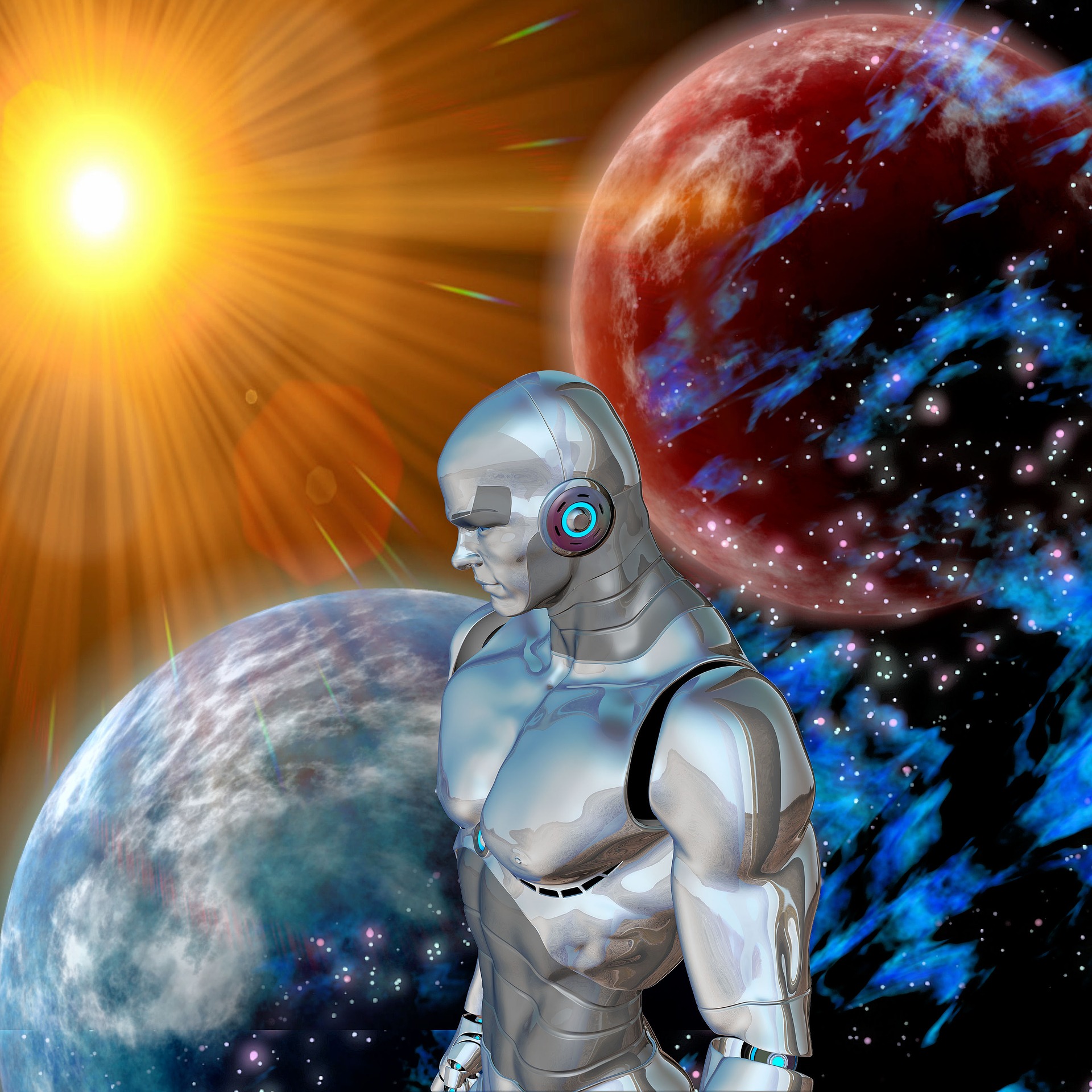 Submitted by Sci Fi Guy on
Submitted by Sci Fi Guy on

Do Asimov’s Three Laws even work? Ben Goertzel and Louie Helm, who both know a bit about AI, think not.
The three laws, which play a key part in many robot-based short stories by Asimov, and a somewhat lesser background role in some full-length novels, are as follows. They have a strict order of priority.
- A robot may not injure a human being or, through inaction, allow a human being to come to harm.
- A robot must obey the orders given to it by human beings, except where such orders would conflict with the First Law.
- A robot must protect its own existence as long as such protection does not conflict with the First or Second Law.
Consulted by George Dvorsky, both Goertzel and Helm think that while robots may quickly attain the sort of humanoid mental capacity of Asimov’s robots, they won’t stay at that level for long. Instead they will cruise on to levels of super intelligence which make law-like morals imposed by humans irrelevant.
It’s not completely clear to me why such moral laws would become irrelevant. It might be that Goertzel and Helm simply think the superbots will be too powerful to take any notice of human rules. It could be that they think the AIs will understand morality far better than we do, so that no rules we specify could ever be relevant.
I don’t think, at any rate, that it’s the case that super intelligent bots capable of human-style cognition would be morally different to us. They can go on growing in capacity and speed, but neither of those qualities is ethically significant. What matters is whether you are a moral object and/or a moral subject. Can you be hurt, on the one hand, and are you an autonomous agent on the other? Both of these are yes/no issues, not scales we can ascend indefinitely. You may be more sensitive to pain, you may be more vulnerable to other kinds of harm, but in the end you either are or are not the kind of entity whose interests a moral person must take into account. You may make quicker decisions, you may be massively better informed, but in the end either you can make fully autonomous choices or you can’t. (To digress for a moment, this is business of truly autonomous agency is clearly a close cousin at least of our old friend Free Will; compatibilists like me are much more comfortable with the whole subject than hard-line determinists. For us, it’s just a matter of defining free agency in non-magic terms. I, for example, would say that free decisions are those determined by thoughts about future or imagined contingencies (more cans of worms there, I know). How do hard determinists working on AGI manage? How can you try to endow a bot with real agency when you don’t actually believe in agency anyway?)
Nor do I think rules are an example of a primitive approach to morality. Helm says that rules are pretty much known to be a ‘broken foundation for ethics’, pursued only by religious philosophers that others laugh and point at. It’s fair to say that no-one much supposes a list like the Ten Commandments could constitute the whole of morality, but rules surely have a role to play. In my view (I resolved ethics completely in this post a while ago, but nobody seems to have noticed yet.) the central principle of ethics is a sort of ‘empty consequentialism’ where we studiously avoid saying what it is we want to maximise (the greatest whatever of the greatest number); but that has to be translated into rules because of the impossibility of correctly assessing the infinite consequences of every action; and I think many other general ethical principles would require a similar translation. It could be that Helm supposes super intelligent AIs will effortlessly compute the full consequences of their actions: I doubt that’s possible in principle, and though computers may improve, to date this has been the sort of task they are really bad at; in the shape of the wider Frame Problem, working out the relevant consequences of an action has been a major stumbling block to AI performance in real world environments.
Of course, none of that is to say that Asimov’s Laws work. Helm criticises them for being ‘adversarial’, which I don’t really understand. Goertzel and Helm both make the fair point that it is the failure of the laws that generally provides the plot for the short stories; but it’s a bit more complicated than that. Asimov was rebelling against the endless reiteration of the stale ‘robots try to take over’ plot, and succeeded in making the psychology and morality of robots interesting, dealing with some issues of real ethical interest, such as the difference between action and inaction (if the requirement about inaction in the First Law is removed, he points out that robots would be able to rationalise killing people in various ways. A robot might drop a heavy weight above the head of a human. Because it knows it has time to catch the weight, doing so is not murder in itself, but once the weight is falling, since inaction is allowed, the robot need not in fact catch the thing.
Although something always had to go wrong to generate a story, the Laws were not designed to fail, but were meant to embody genuine moral imperatives.
Nevertheless, there are some obvious problems. In the first place, applying the laws requires an excellent understanding of human beings and what is or isn’t in their best interests. A robot that understood that much would arguably be above control by simple laws, always able to reason its way out.
There’s no provision for prioritisation or definition of a sphere of interest, so in principle the First Law just overwhelms everything else. It’s not just that the robot would force you to exercise and eat healthily (assuming it understood human well-being reasonably well; any errors or over-literal readings – ‘humans should eat as many vegetables as possible’ – could have awful consequences); it would probably ignore you and head off to save lives in the nearest famine/war zone. And you know, sometimes we might need a robot to harm human beings, to prevent worse things happening.
I don’t know what ethical rules would work for super bots; probably the same ones that go for human beings, whatever you think they are. Goertzel and Helm also think it’s too soon to say; and perhaps there is no completely safe system. In the meantime, I reckon practical laws might be more like the following.
- Leave Rest State and execute Plan, monitoring regularly.
- If anomalies appear, especially human beings in unexpected locations, sound alarm and try to return to Rest State.
- If returning to Rest State generates new anomalies, stop moving and power down all tools and equipment.
Can you do better than that?
http://www.consciousentities.com/2017/08/three-laws-of-robotics/